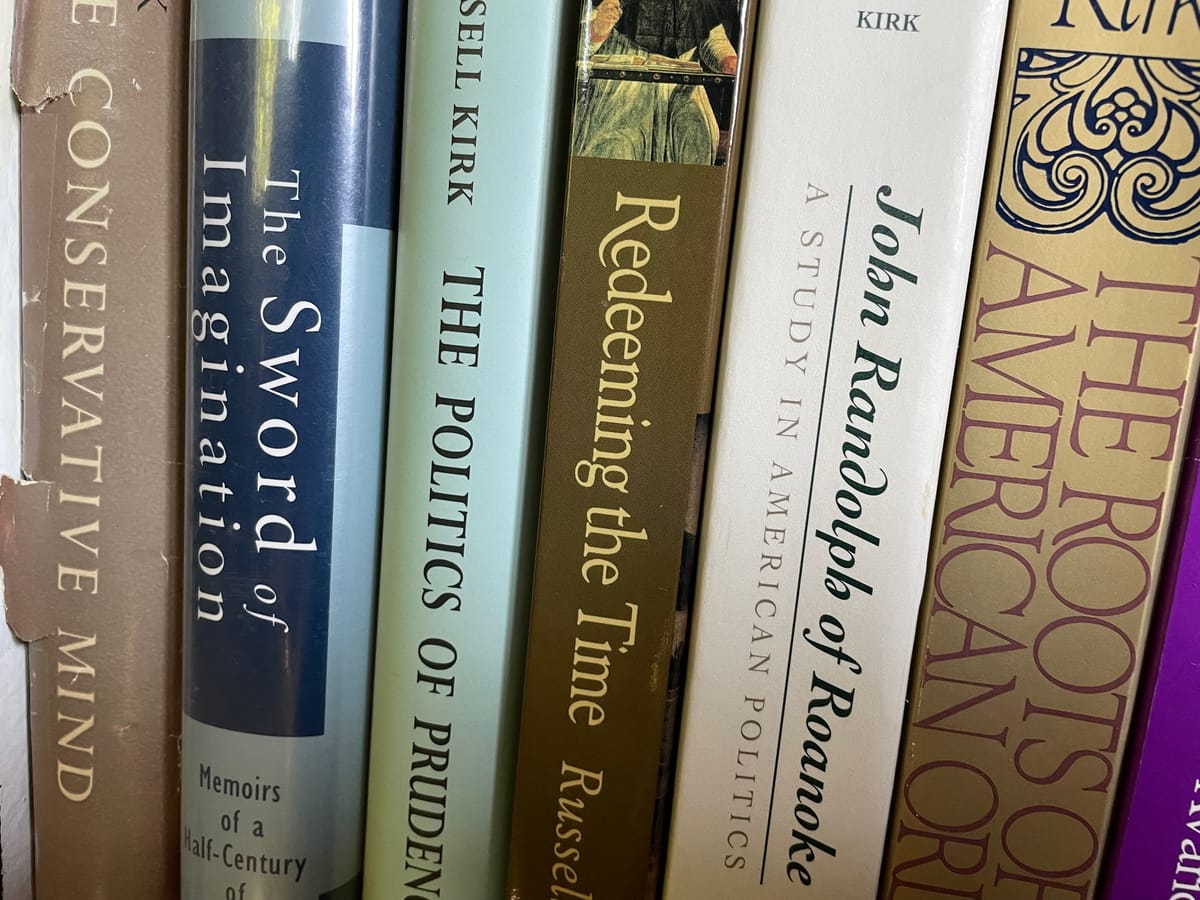The Conservative Mind, by Russell Kirk
A Micro-Review/Essay

“Hawthorne’s chief accomplishment: impressing the idea of sin upon a nation which would like to forget it.”
My book still has that smell that all the books from that little bookstore in Niles, Michigan, had. I bought it for $10, back in 1989, when I was a law student. I had little money and even less time at that moment in life, but for some reason, I really wanted this book. It blew me away. I remember reading it in a cubicle at the Notre Dame Law School library and two friends asking me what I was reading. I showed them, then rambled excitedly about it for a minute or so. They looked at me like I were nuts, but they smiled, trying to be polite, then left me to my book. Kirk’s book became my favorite kind of book: a book about books. I’m not even sure I consider myself a conservative anymore. I rather identify with the libertarians of the Nockian stripe: beautiful libertarians, not the nasty individualist Randian types. Kirk’s was a beautiful mind, so it’s not surprising that he loved Nock’s masterpiece Memoirs of a Superfluous Man. Did Kirk square his conservatism with libertarian economic ideas? No, in fact, late in life, he wrote a strong condemnation of libertarianism, but still, the State was always the elephant whore in Kirk’s room. He never really seemed to know what to make of it. He hated it but didn’t seem inclined to kill it. It’s a shortcoming, but one that can be forgiven: hurriedly, anxiously. For no man should sit in judgment on the likes of Kirk.
